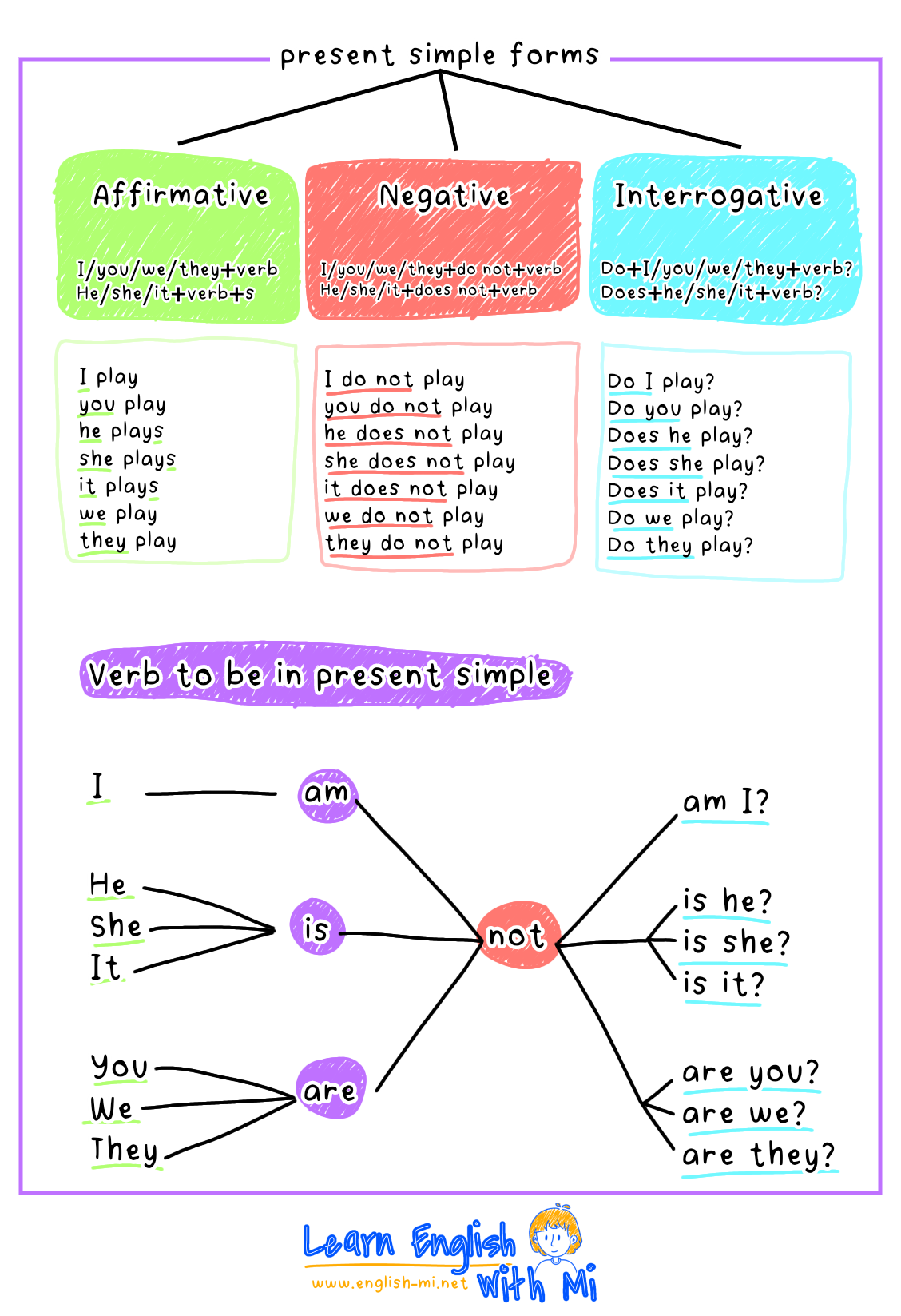Present tense is one of the most important tenses in English language, that mostly used to describe habits, facts, and actions that happen regularly. In this article, we will cover everything you need to know about present simple tense, its forms, its structure, and how to use it correctly.
How to form the simple present
Affirmative sentence form
- subject + base form of verb (add s for third person singular)
I / you / we / they + verb
he / she / it + verb + s
Examples
I watch a movie every night.
subject (I) + base form of verb (watch)
He works in an office.
subject (he) + base form of verb + s (works)
We travel every weekend.
subject (we) + base form of verb (travel)
She likes her new house.
subject (she) + base form of verb + s (likes)
Negative sentence form
- subject + do / does not + base form of the verb
I / you / we / they + do not + verb
He / she / it + does not +verb
Examples
He does not go to gym.
subject (he) + does not + base form of verb (go)
I do not like coffee.
subject (I) + do not + base form of verb (like)
She does not eat fruit.
subject (she) + does not + base form of verb (eat)
They do not play soccer.
subject (they) + do not + base form of verb (play)
Interrogative sentence form
- do / does + subject + base form of the verb
Do + I / you / we / they + verb ?
Does + he / she / it + verb ?
Examples
Do you enjoy reading ?
Do + subject (you) + base form of verb (enjoy) ?
Does he work at home ?
Does + subject (he) + base form of verb (work) ?
Do they like cakes ?
Do + subject (they) + base form of verb (like) ?
Does she speak English ?
Does + subject (she) + base form of verb (speak) ?
Verb “to be” in present simple tense
forms of verb to be
| subject | affirmative | negative | question |
| I | I am | I am not | am I ? |
| you | you are | you are not | are you ? |
| he | he is | he is not | is he ? |
| she | she is | she is not | is she ? |
| it | it is | it is not | is it ? |
| we | we are | we are not | are we ? |
| they | they are | they are not | are they ? |
Examples
I am a student.
subject (I) + verb to be (am)
Are you an artist ?
verb to be (are) + subject (you) ?
She is not my best friend.
subject (she) + verb to be (is) + not
Usage of verb to be
- Identifying : He is a teacher.
- Describing : The sky is blue.
- Indicating existence : There are many stars in the sky.
- Location : I am at the bus station.
- Indicating states : She is happy.
The present simple tense is used to describe actions that happen regularly, habits, routines, and general truths and facts. It is a fundamental tense in English, essential for everyday communication and expressions, and discussing everyday actions, stating facts, or describing regular occurrences.


